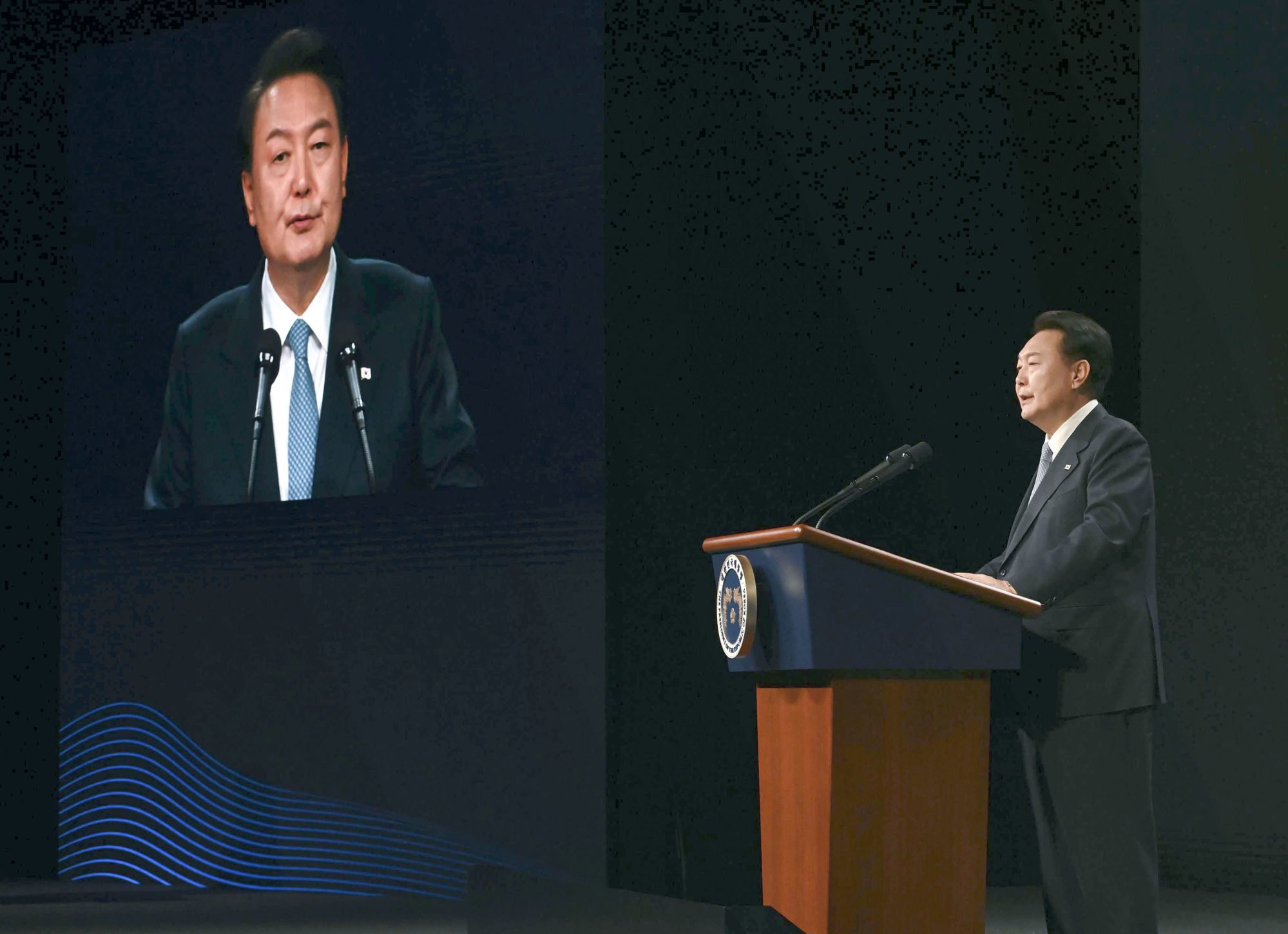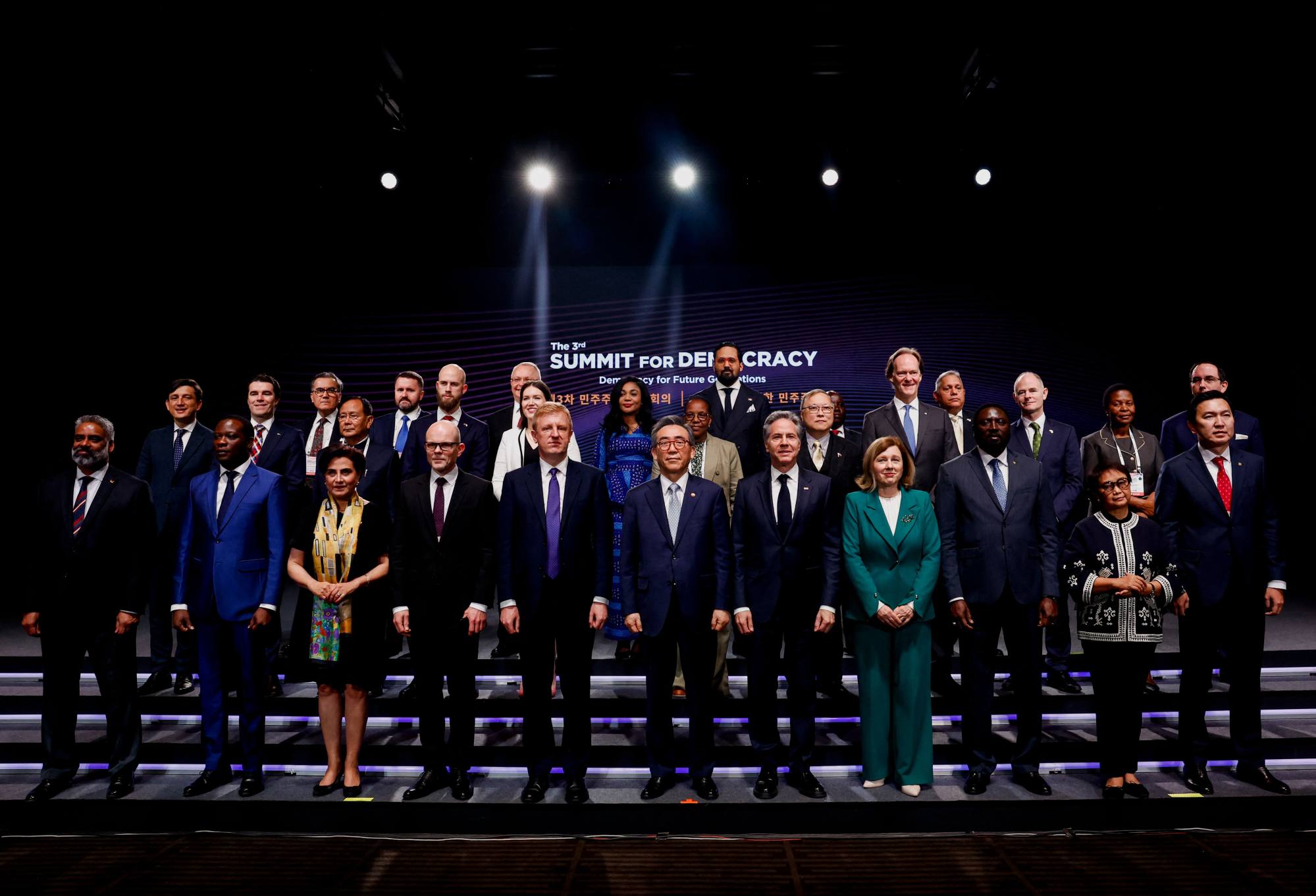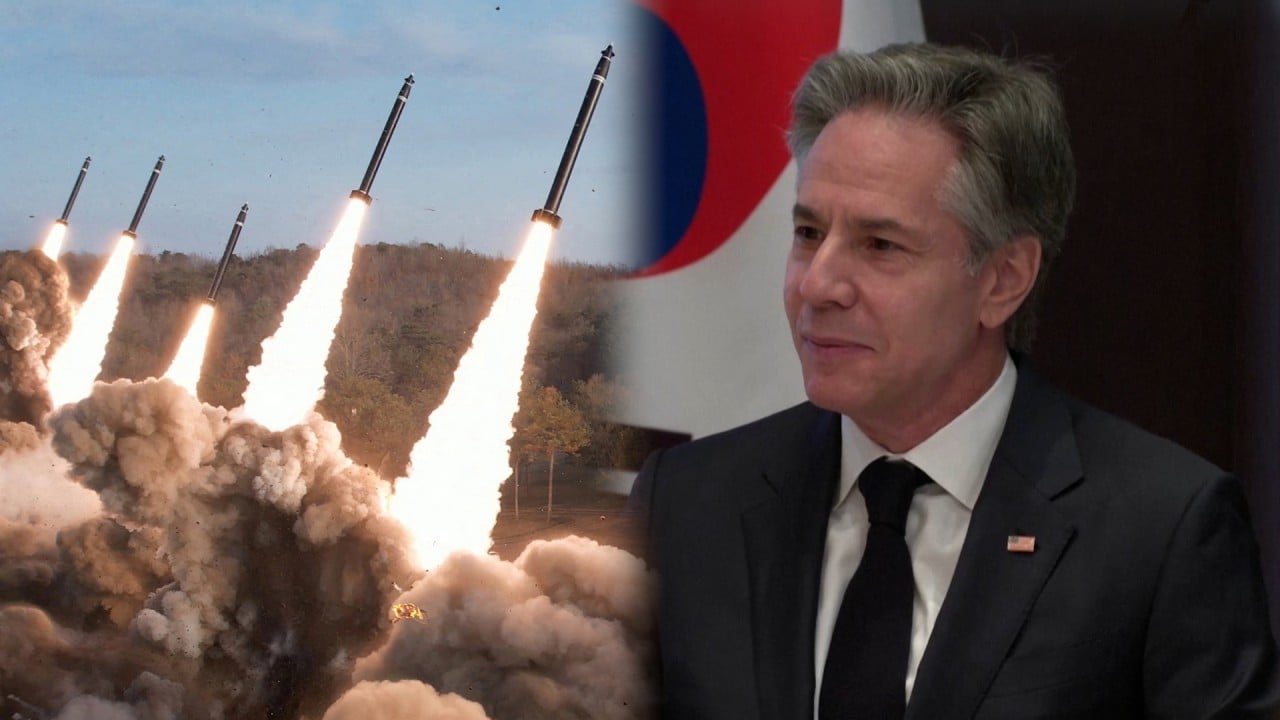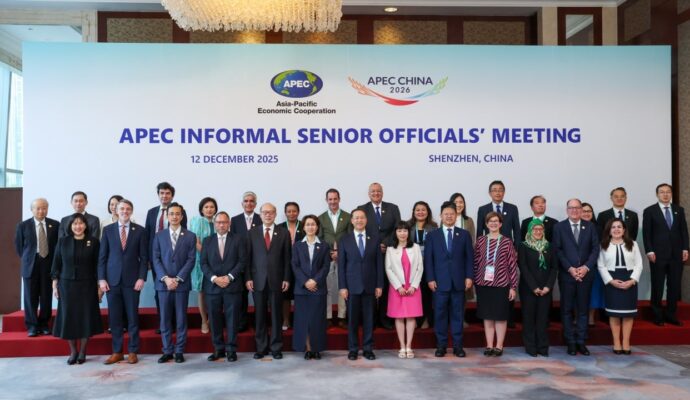Diplomatic observers said that while Seoul will still be cautious regarding Taiwan because of its close economic ties with mainland China, the hosting of the summit and close alignment with the US in other areas could drive it further away from Beijing.
Kang Jun-young, a professor of Chinese studies at Hankuk University of Foreign Studies in Seoul, said: “Basically, South Korea is pursuing value-based diplomacy.

“The reason is that now that the Biden administration is pursuing a policy that emphasises and values alliances, and Korea is also a democratic and free market economy country.
“As Seoul discusses democratic values, I think it differentiates itself from China with different systems and values. Of course … this means that Korea will establish itself as a country that respects the same values as Western countries, including the United States.”
Yoon has previously described the country’s relationship with the US as an “alliance of values” which, he added, “is even stronger because we share a belief in liberal democracy”.
This year’s event – which had the theme of “democracy for future generations” – included a pre-recorded video message from Taiwan’s digital affairs minister Audrey Tang. It was played during a round-table discussion on artificial intelligence and emerging technology
Can a new South Korea-Japan agreement take bilateral ties to the next level?
Can a new South Korea-Japan agreement take bilateral ties to the next level?
Tang said that during the island’s elections in January, “bad actors in the pay of authoritarians pulled out all stops, coming close to poisoning [Taiwan’s] information climate and interfering in the outcome,” according to the Taiwanese digital affairs ministry.
Beijing regards Taiwan as part of China that must be reunited with the mainland – by force if necessary – and expressed its “firm opposition” to Taiwan’s presence at the event, saying “there is only one China in the world”.
“China has solemnly urged South Korea to abide by the one-China principle and stop providing a platform to Taiwan independence forces and making excuses for them,” said foreign ministry spokesman Lin Jian.
Most countries, including the US and South Korea, do not recognise Taiwan as an independent state, but oppose any attempt to take it by force.
In response to Beijing’s criticism, South Korean foreign ministry spokesman Lim Soo-suk said the summit for democracy was held to “contribute to the promotion of democracy and human rights,” and it was not aimed at any specific country.
Lim added: “There is no change in our government’s position of respecting one China.”
Andrew Yeo, a senior fellow and the SK-Korea Foundation chair of Korea studies at Washington-based think tank the Brookings Institution, said there is a “slow movement and recognition” within Seoul that Taiwan is becoming more of a global problem.
“We know that South Korea is not at the same place as other allies like Japan and Australia when it comes to concerns about a Taiwan contingency,” said Yeo.
“But we’ve seen the language shift, starting from the end of the Moon [Jae-in] government, and then with the Yoon government in terms of reinforcing this idea of maintaining peace and stability on the Taiwan Strait.
“I think Korea will, at least under the Yoon government, move in a direction that is more consistent with some other Western countries on the Taiwan issue, but probably not at the same pace or speed.”
US top official Blinken arrives in South Korea to attend democracy summit
US top official Blinken arrives in South Korea to attend democracy summit
Yeo said the democracy summit was the Yoon administration’s attempt to present South Korea as a “global pivotal state”, and reinforce its alignment with US foreign policy.
“As we’ve seen, Yoon doubled down on this value-based diplomacy, global pivotal state argument, and because Taiwan is becoming more recognised as an international issue … it would look bad if the Yoon government completely ignored this issue,” said Yeo.
But Kang, from the Hankuk University of Foreign Studies, said that “from China’s perspective”, this shift “would be very difficult to understand”.
“So, for the time being, if Korea brings up such value diplomacy or such things, it will inevitably be uncomfortable for China, and I don’t think that will be a positive factor in Korea-China relations in the short to medium term,” he said.

“I believe that quickly establishing communication between both sides on how to manage conflict will lead to the future development of both countries … so I hope that the two countries will put their heads together to create such a communication mechanism sooner.”
US Secretary of State Antony Blinken was among those attending the event, which he used to warn that “authoritarian and repressive regimes deploy technologies to undermine democracy and human rights”.
While he was in Seoul, he met his South Korean counterpart Cho Tae-yul and the pair reaffirmed their commitment to “protecting the rules-based international order” and “exchanged opinions on regional issues such as Ukraine, the Middle East, the South China Sea, and Taiwan,” according to the South Korean foreign ministry.


